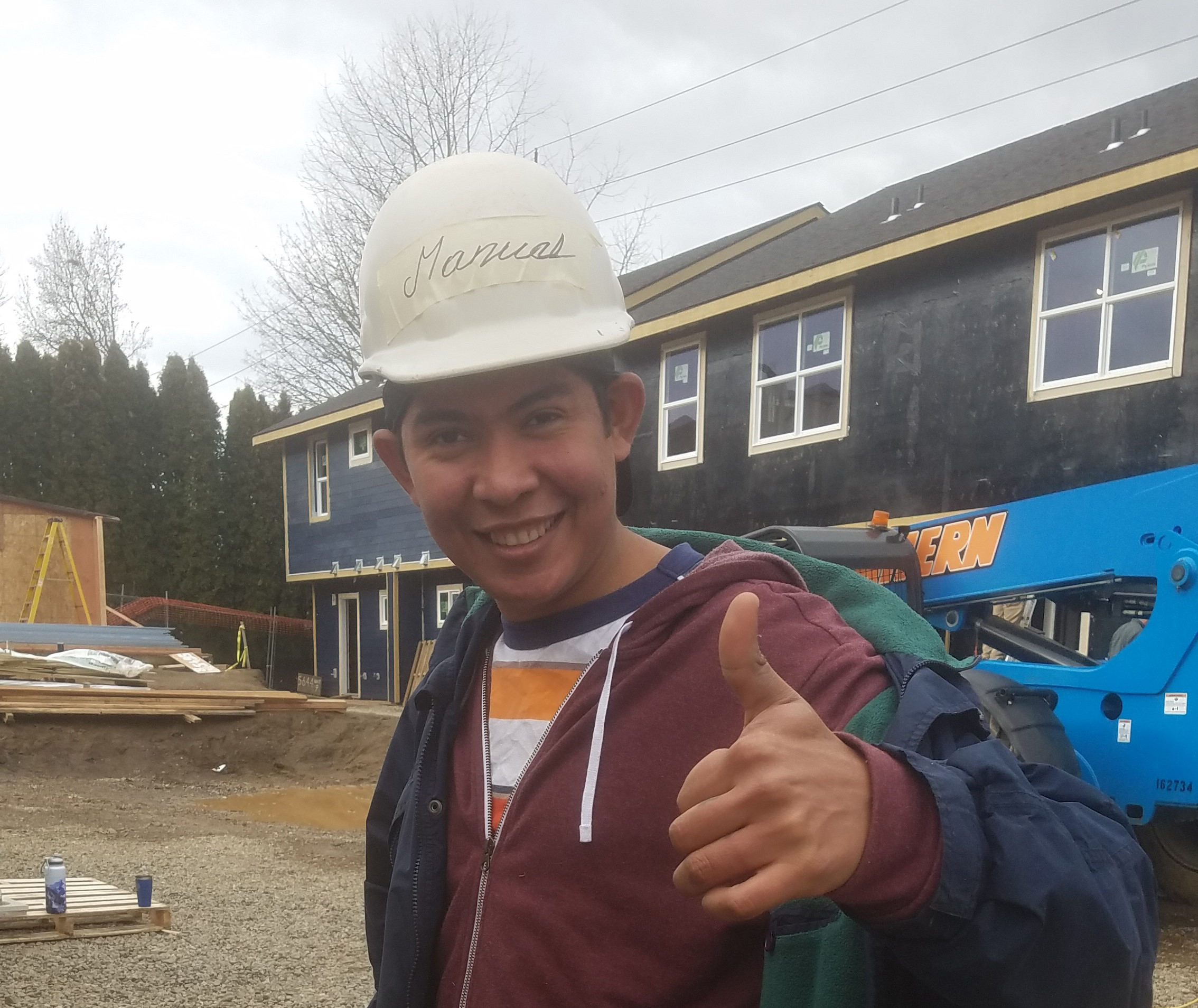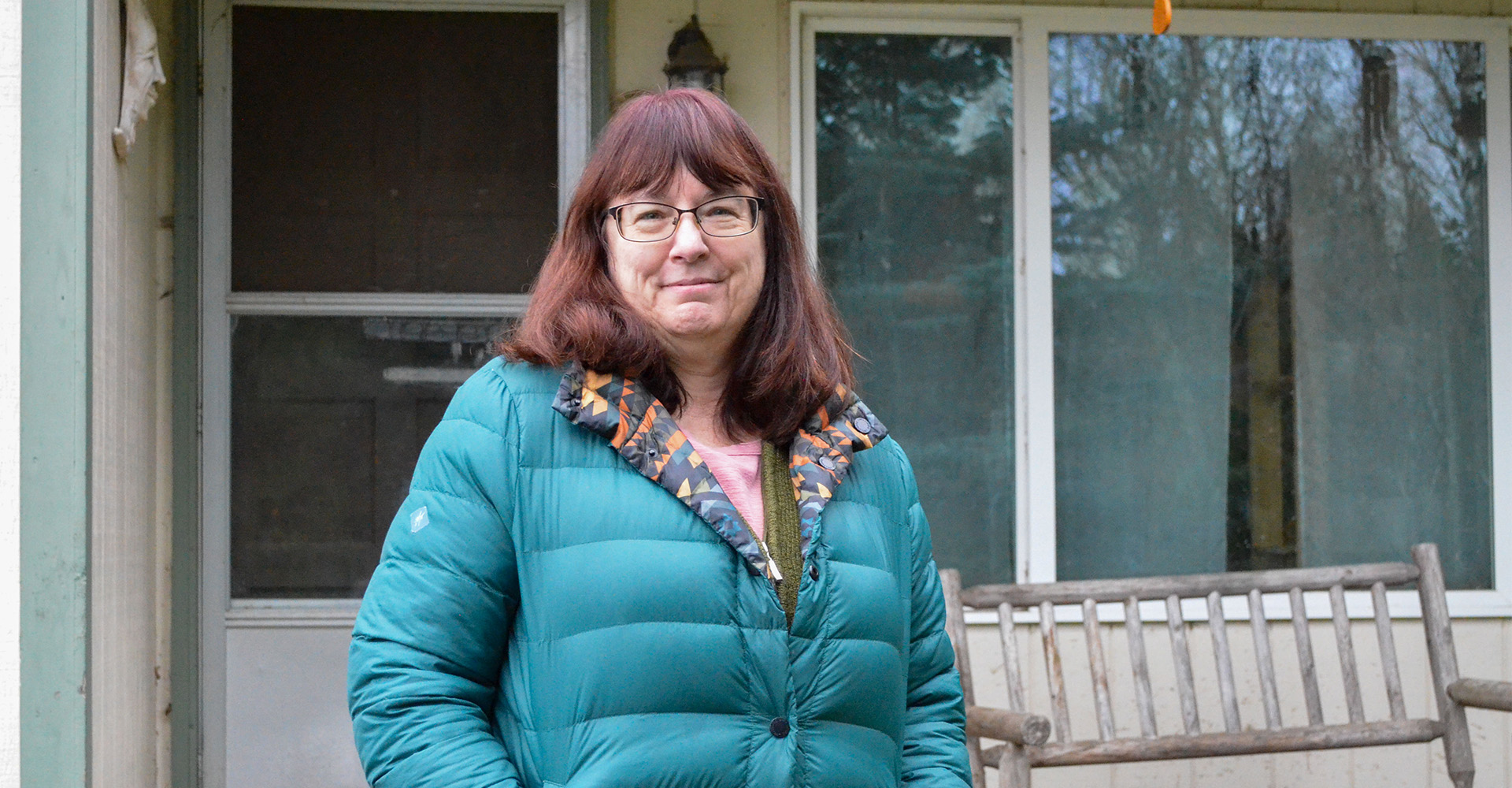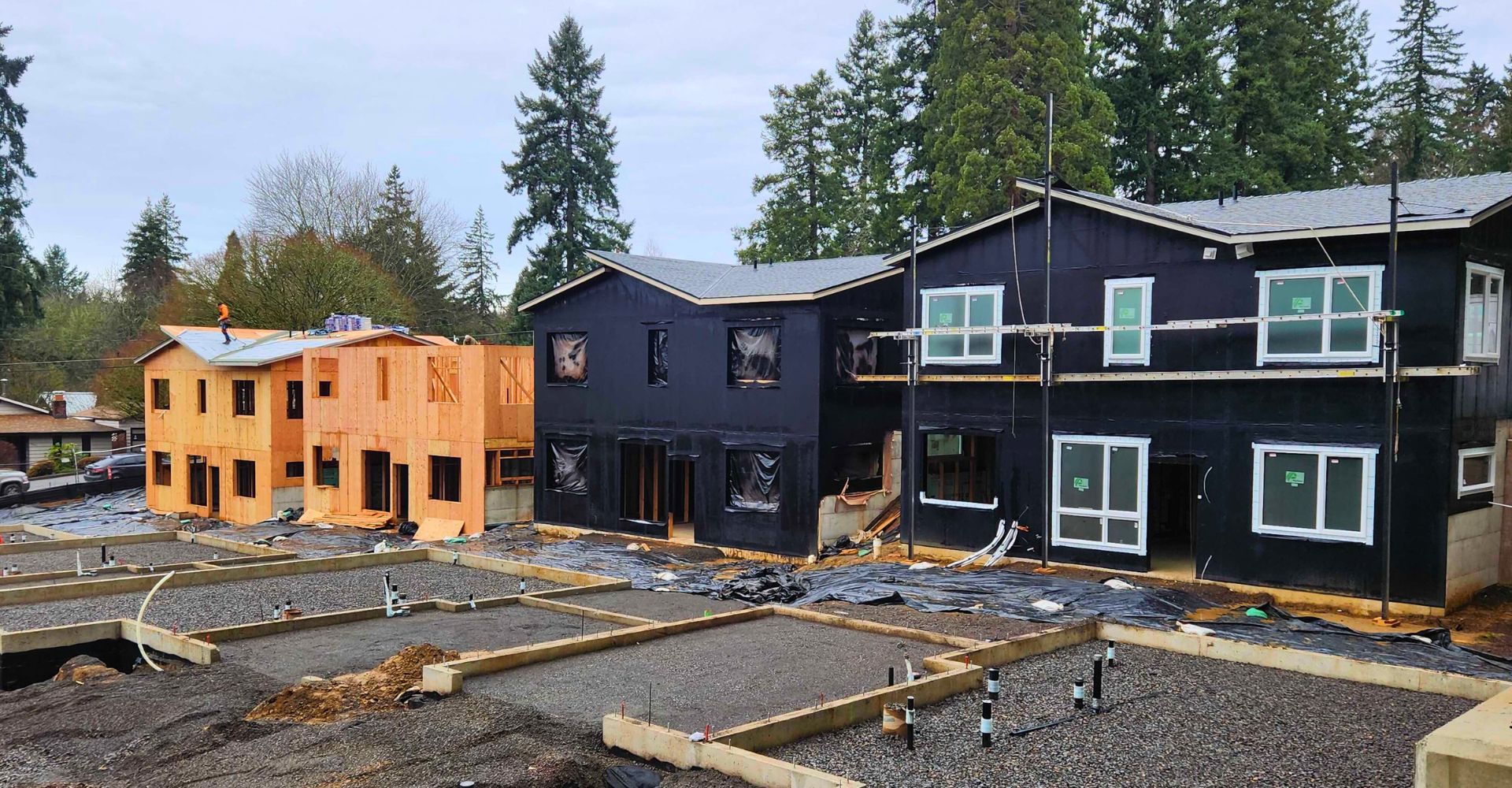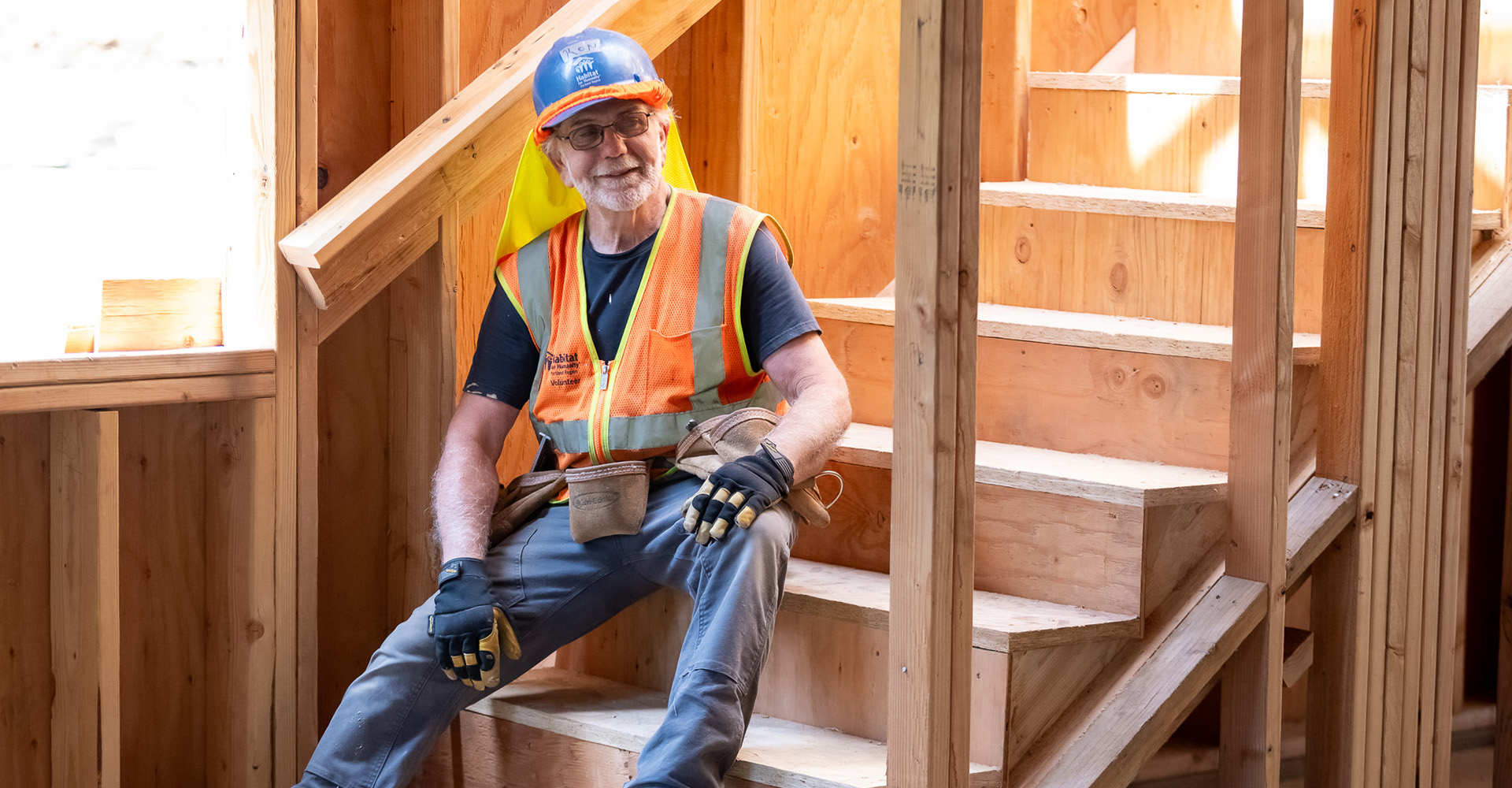
All that Manuel Isasi desires is to have a simple life, free from harm. It is something he contemplates often as he awaits the final hearing in his asylum case. Having left his home at the age of 19, his years long passage north has been arduous; he’s spent many nights on the street, but in the spare chances he was able to call his mom, he’d tell her everything was fine and to not worry.
News headlines flash across screens with images of immigrants caged in parking lots beneath highways, sparking public debate on immigration policy and reform. Facts about the realities at the border yo-yo depending on which news channel you flip through. And at the heart of it, asylum seekers are caught in the crossfires of a country divided with no long-term solution in sight. All of this has taken a toll on Manuel’s journey to refuge , but it has not broken his spirit.
In fact, his capacity to give back is astounding. As he waits for permission to work, he volunteers at our construction site, building homes alongside homebuyers, construction staff, and volunteers who all want to help more Portlanders achieve the dream of homeownership.
“It feels like I’m part of the community here,” Manuel said. “I want to help people because so many people have helped me.”
But for most of his journey, Manuel had to face stark challenges alone. He was targeted by local gangs in Honduras and fled to Mexico. He attended classes and worked full time, sending money home to his family often. But when the gangs followed him, he was forced to look north for safety. Just as Manuel sought asylum at an official port of entry, the “zero tolerance” policy went into effect, leading not only to the separation of parents and children at the border, but the unprecedented detention of hundreds of asylum seekers in federal prisons. Manuel was among the 124 men who were bussed to the Sheridan Federal Correctional Institution, Oregon’s sole federal prison.
He was detained there for months, initially without being able to make phone calls or access an immigration attorney. Hope was bleak as he and fellow immigrants, hailing from 16 different countries, waited in isolation. It wasn’t until the ACLU of Oregon filed a lawsuit and Innovation Law Lab intervened to provide free representation to anyone who desired it that Manuel and others began to envision a future outside of detention.
It was then that Manuel met Paloma Norris-York, an attorney who volunteered with Innovation Law Lab to provide immigration legal services. Knowing that asylum seekers did not stand a chance of winning freedom from detention without family or friends to sponsor them, Paloma and her family offered to sponsor any individual who could not connect with a relative living in the U.S.
After Manuel passed his initial asylum interview, Innovation Law Lab submitted a request to ICE for his release, complete with thoughtful letters of support written by Paloma and her family. In September 2018 after nearly four months at Sheridan, Manuel joined Paloma and her family in Portland.
A family bond immediately formed, as Manuel and Paloma’s family learned to navigate the complexities of this newfound relationship through broken Spanish. Now, as Manuel awaits his upcoming immigration hearing date, he takes English and art classes in addition to his regular shifts volunteering with Habitat. He said he’s found a welcoming environment at the build site, where he gets to use his years of experience to build homes from the ground up.
Having grown up in a family of carpenters and practiced carpentry since the age of seven, he brings an ample amount of experience and creativity to the worksite, making friends with crew leads and new volunteers every day. One day, he surprised Habitat’s AmeriCorps members with a handmade gift: a crab molded from scrap wire he made in five minutes. It was a simple gift not unlike the time he gave his favorite soccer jersey to a fellow traveler just before he crossed the border, or the rosaries he handcrafted out of plastic fork wrappers, intricately folded and decorated with colored pencil for the men detained in prison when all seemed desolate–these gifts: small, but not insignificant gestures of hope and generosity; a reminder of the strength in kindness not yet lost.


